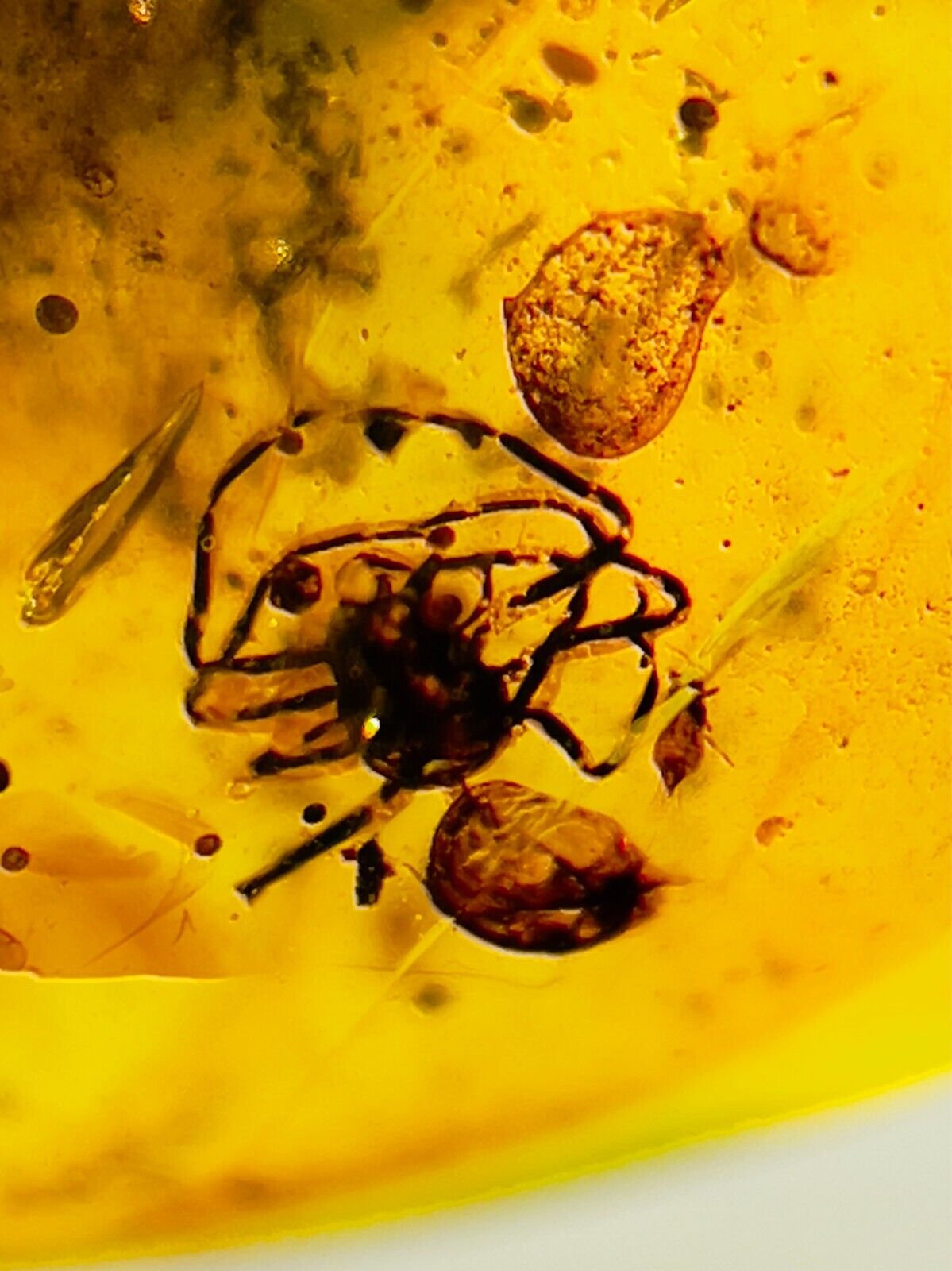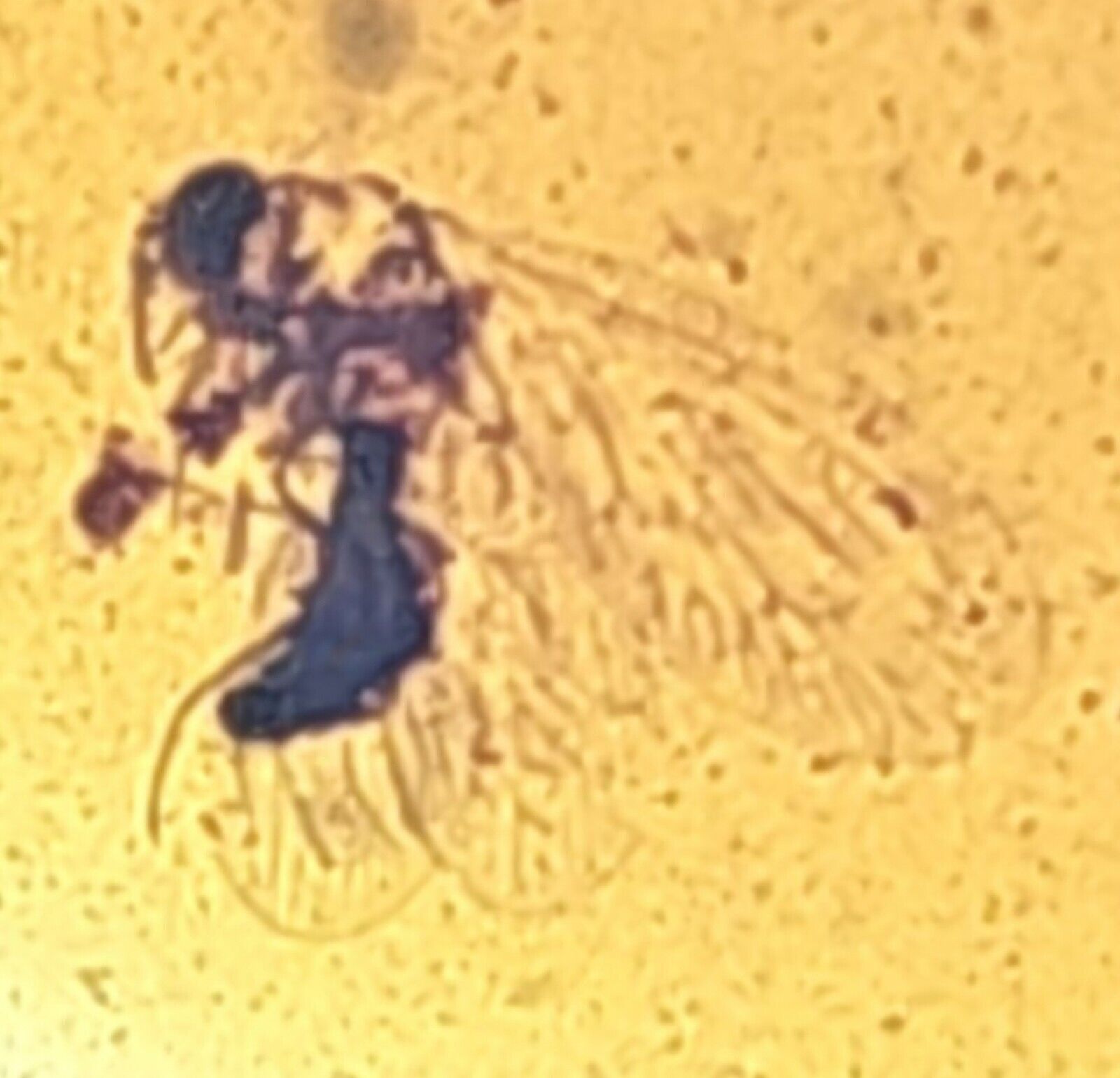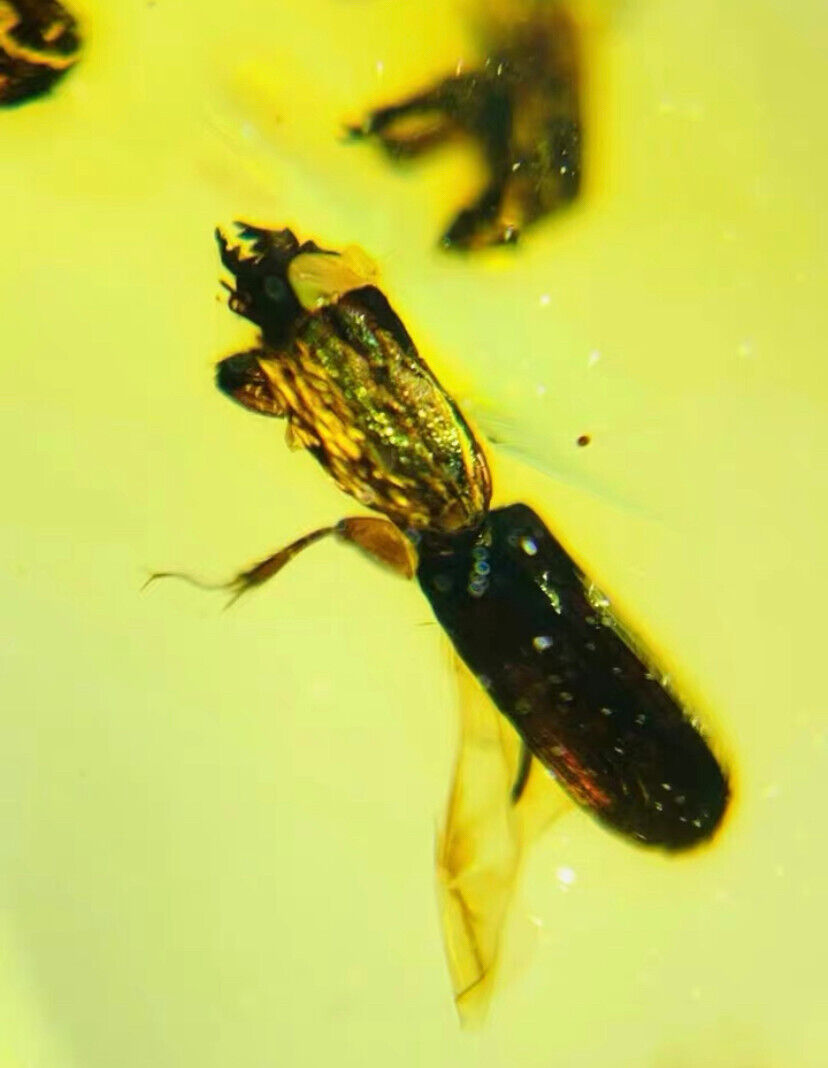-40%
Fossil amber Insect burmite Burmese Cretaceous spider Insect Myanmar
$ 5.22
- Description
- Size Guide
Description
If you like it or are interested, please add it and follow it. There will be updates every day.Burmese amber, also known as Myanmar amber, is a precious fossilized tree resin primarily found in the Kachin State of northern Myanmar. It is renowned for containing ancient insects, plants, and other biological inclusions, which are exceptionally well-preserved and provide valuable material for scientific research.
Burmese amber dates back to the mid-Cretaceous period, approximately 100 million years ago. Compared to amber from other regions, Burmese amber exhibits a wider range of colors, from transparent, yellow, and orange to deep red, green, and blue. Due to its unique colors and inclusions, Burmese amber is highly prized by collectors and scientists alike.
Key features of Burmese amber include:
1. **Rich Inclusions**: Burmese amber often contains a variety of inclusions, such as ancient insects, spiders, lizards, flowers, leaves, and fragments of trees. These inclusions provide crucial insights for paleontologists studying ancient ecosystems.
2. **Varied Colors**: The color of Burmese amber ranges from light yellow to deep red, with rare occurrences of green and blue. The diversity of colors makes Burmese amber highly sought after in the jewelry and decorative arts markets.
3. **Unique Luster**: Burmese amber has a distinctive luster and transparency, especially after being polished and refined. Its beautiful sheen makes it an ideal material for creating jewelry and decorative items.
4. **Scientific Value**: Due to the excellent preservation of biological inclusions in Burmese amber, scientists can study the biodiversity and ecological environment of the mid-Cretaceous period. This research provides important clues for understanding the evolutionary history of the Earth.
Overall, Burmese amber is cherished not only for its stunning appearance and rich inclusions but also for its significant value in scientific research. This makes it a favorite among collectors, jewelry enthusiasts, and academics.















